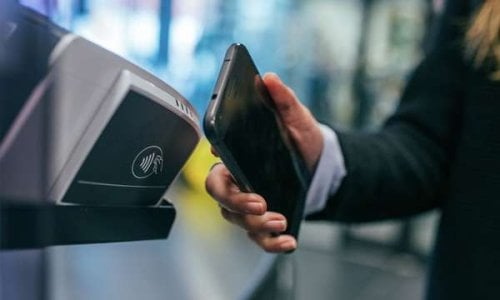Attention Westpac customers: Major changes to debit cards coming, including new $1000 withdrawal limit and more
- Replies 22
As the world moves further away from cash transactions and embraces digital payment options, major Australian banks are keeping up with the pace and making changes accordingly.
For Westpac customers, take note: some significant changes have been made to your debit cards, including a new $1000 withdrawal limit.
Westpac has announced some significant updates, coming into effect on August 20, capping the default cash withdrawal limit at $1000, reflecting dwindling levels of cash withdrawals across the country.
Furthermore, transaction limits for 'credit' payments are now capped at a default of $8000, whereas previously, the limit for tapping, inserting, or making online payments was the customer's available balance.
But fret not, these default limits aren't set in stone. Westpac customers will still have the option to set different cash withdrawal limits depending on their individual needs.
Customers who wish to adjust their debit card limits can do so via the Westpac App, online, over the phone at 1300 655 505, or by visiting their branch in person.

The Reserve Bank of Australia (RBA) has recently revealed significant changes in cash transactions within the country. In their June report titled 'Cash Use and Attitudes in Australia June 2023 Bulletin', the RBA found that cash usage has sharply declined.
According to the report, most Australians are now categorised as 'low cash users'. This means that 72% of the population relies on cash for only 20% or fewer in-person transactions. This percentage has increased from 50% in 2019, indicating a notable shift in consumer behaviour.
Conversely, the number of 'high cash users' has plummeted. These individuals, who previously accounted for 14% of the population in 2019, now represent 7% of Australians—highlighting the diminishing popularity of cash as a preferred payment method.
FIS, a financial tech company located overseas, conducted a survey comparing cash usage across 40 countries. The results revealed that Australians rank among the lowest cash users globally, second only to Norwegians. In the Asia Pacific, Australia claimed the lowest cash usage, with cash payments representing only 6% of point-of-sale transactions.
Other nearby countries aren't far behind in adopting digital and electronic payment systems. New Zealand, China, and South Korea reported cash payment levels of 7%, 8%, and 11%, respectively—revealing that these countries have also embraced the convenience of digital transactions.
The future is becoming increasingly cashless, with Westpac's withdrawal limit changes consistent with other Australian banks. The Commonwealth Bank has a $1000 withdrawal limit, which can be increased to $2000, while ANZ and NAB offer limits of $1000 and $2000, respectively.
Under current federal legislation, businesses must submit a Threshold Transaction Report (TTR) whenever providing a service that involves the transfer of $10,000 or the foreign currency equivalent.
These TTRs are enforced by the government to help detect and disrupt criminal and terrorist activity, illustrating the changes in how we handle money.
Today's digital payment options available to customers include mobile wallets, such as Apple Pay and Google Pay, contactless cards, and online banking and bill payments. While these changes may seem daunting, Aussies can reap the benefits of digital payments with a few simple tips.
By setting up digital banking, you can manage your account easily—just make sure to use strong and unique passwords for added security. Additionally, familiarise yourself with contactless payments using your card or mobile wallet for a more seamless shopping experience.
However, it's essential to acknowledge the potential drawbacks of an increasingly cashless society, such as privacy concerns and the risk of leaving behind those without digital access.

With the world's ongoing transition towards digital payment options, we will inevitably witness similar changes in the future.
If you happen to be a Westpac customer or banking with another institution implementing such updates, it's important to acquaint yourself with these changes and make any necessary adjustments to ensure a seamless banking experience.
Who knows? In the not-too-distant future, we might find ourselves nostalgic for when we used to carry coins and dollar notes in our wallets.
We'd love to hear your opinions on these changes, members. Have you also adopted digital and cashless payments, or do you still prefer using physical cash for transactions? Share your thoughts with us in the comments section below!
For Westpac customers, take note: some significant changes have been made to your debit cards, including a new $1000 withdrawal limit.
Westpac has announced some significant updates, coming into effect on August 20, capping the default cash withdrawal limit at $1000, reflecting dwindling levels of cash withdrawals across the country.
Furthermore, transaction limits for 'credit' payments are now capped at a default of $8000, whereas previously, the limit for tapping, inserting, or making online payments was the customer's available balance.
But fret not, these default limits aren't set in stone. Westpac customers will still have the option to set different cash withdrawal limits depending on their individual needs.
Customers who wish to adjust their debit card limits can do so via the Westpac App, online, over the phone at 1300 655 505, or by visiting their branch in person.

Westpac has enforced a $1000 default cash withdrawal limit and an $8000 transaction limit on debit cards amid declining cash withdrawals. Credit: Shutterstock.
The Reserve Bank of Australia (RBA) has recently revealed significant changes in cash transactions within the country. In their June report titled 'Cash Use and Attitudes in Australia June 2023 Bulletin', the RBA found that cash usage has sharply declined.
According to the report, most Australians are now categorised as 'low cash users'. This means that 72% of the population relies on cash for only 20% or fewer in-person transactions. This percentage has increased from 50% in 2019, indicating a notable shift in consumer behaviour.
Conversely, the number of 'high cash users' has plummeted. These individuals, who previously accounted for 14% of the population in 2019, now represent 7% of Australians—highlighting the diminishing popularity of cash as a preferred payment method.
FIS, a financial tech company located overseas, conducted a survey comparing cash usage across 40 countries. The results revealed that Australians rank among the lowest cash users globally, second only to Norwegians. In the Asia Pacific, Australia claimed the lowest cash usage, with cash payments representing only 6% of point-of-sale transactions.
Other nearby countries aren't far behind in adopting digital and electronic payment systems. New Zealand, China, and South Korea reported cash payment levels of 7%, 8%, and 11%, respectively—revealing that these countries have also embraced the convenience of digital transactions.
The future is becoming increasingly cashless, with Westpac's withdrawal limit changes consistent with other Australian banks. The Commonwealth Bank has a $1000 withdrawal limit, which can be increased to $2000, while ANZ and NAB offer limits of $1000 and $2000, respectively.
Under current federal legislation, businesses must submit a Threshold Transaction Report (TTR) whenever providing a service that involves the transfer of $10,000 or the foreign currency equivalent.
These TTRs are enforced by the government to help detect and disrupt criminal and terrorist activity, illustrating the changes in how we handle money.
Today's digital payment options available to customers include mobile wallets, such as Apple Pay and Google Pay, contactless cards, and online banking and bill payments. While these changes may seem daunting, Aussies can reap the benefits of digital payments with a few simple tips.
By setting up digital banking, you can manage your account easily—just make sure to use strong and unique passwords for added security. Additionally, familiarise yourself with contactless payments using your card or mobile wallet for a more seamless shopping experience.
However, it's essential to acknowledge the potential drawbacks of an increasingly cashless society, such as privacy concerns and the risk of leaving behind those without digital access.
Key Takeaways
- Westpac has enforced a $1000 default cash withdrawal limit and an $8000 transaction limit on debit cards amid declining cash withdrawals in Australia.
- The Reserve Bank of Australia found that 72% of Australians are 'low cash users', using cash for 20% or less of their in-person transactions.
- A survey by a financial tech company found that Australians are among the lowest cash users in the world, only surpassed by Norwegians.
- Westpac customers can change their debit card limits after August 20 on the Westpac App, online, over the phone, or by visiting staff at a branch.
With the world's ongoing transition towards digital payment options, we will inevitably witness similar changes in the future.
If you happen to be a Westpac customer or banking with another institution implementing such updates, it's important to acquaint yourself with these changes and make any necessary adjustments to ensure a seamless banking experience.
Who knows? In the not-too-distant future, we might find ourselves nostalgic for when we used to carry coins and dollar notes in our wallets.
We'd love to hear your opinions on these changes, members. Have you also adopted digital and cashless payments, or do you still prefer using physical cash for transactions? Share your thoughts with us in the comments section below!









